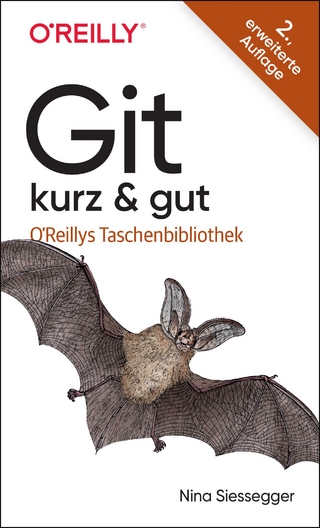
ECOOP 2002 - Object-Oriented Programming
Springer Berlin (Verlag)
978-3-540-43759-8 (ISBN)
Invited Talk 1.- Semantic Models for Distributed Object Reflection.- Aspect Oriented Software Development.- AOP: Does It Make Sense? The Case of Concurrency and Failures.- Difference-Based Modules: A Class-Independent Module Mechanism.- Dynamically Composable Collaborations with Delegation Layers.- Java Virtual Machines.- Space- and Time-Efficient Implementation of the Java Object Model.- Atomic Instructions in Java.- Code Sharing among Virtual Machines.- Miscellaneous.- J-Orchestra: Automatic Java Application Partitioning.- Supporting Unanticipated Dynamic Adaptation of Application Behaviour.- A Simple and Practical Approach to Unit Testing: The JML and JUnit Way.- Invited Talk 2.- Objectively: Components versus Web Services.- Distributed Systems.- Modular Internet Programming with Cells.- Lana: An Approach to Programming Autonomous Systems.- Engineering Event-Based Systems with Scopes.- Patterns and Architecture.- Architectural Reasoning in ArchJava.- Patterns as Signs.- Pattern-Based Design and Implementation of an XML and RDF Parser and Interpreter: A Case Study.- Languages.- Modern Concurrency Abstractions for C#.- On Variance-Based Subtyping for Parametric Types.- Type-Safe Prototype-Based Component Evolution.- Optimization.- Thin Guards: A Simple and Effective Technique for Reducing the Penalty of Dynamic Class Loading.- Type-Safe Method Inlining.- Polychotomic Encoding: A Better Quasi-Optimal Bit-Vector Encoding of Tree Hierarchies.- Theory and Formal Techniques.- Semantics-Based Composition of Class Hierarchies.- Behavioral Compatibility of Self-Typed Theories.- A Formal Framework for Java Separate Compilation.
| Erscheint lt. Verlag | 3.6.2002 |
|---|---|
| Reihe/Serie | Lecture Notes in Computer Science |
| Zusatzinfo | XI, 637 p. |
| Verlagsort | Berlin |
| Sprache | englisch |
| Maße | 155 x 235 mm |
| Gewicht | 907 g |
| Themenwelt | Mathematik / Informatik ► Informatik ► Software Entwicklung |
| Schlagworte | Aspect-Oriented Programming • Component Systems • C++ Programming • Distributed Systems • Hardcover, Softcover / Informatik, EDV/Informatik • HC/Informatik, EDV/Informatik • Java • Java programming • Java Virtual Machine • Object-oriented Languages • object-oriented programming • Object Systems • object technology • Objektorientierte Programmierung • Optimization • programming • Software Architectures • UML • XML |
| ISBN-10 | 3-540-43759-2 / 3540437592 |
| ISBN-13 | 978-3-540-43759-8 / 9783540437598 |
| Zustand | Neuware |
| Informationen gemäß Produktsicherheitsverordnung (GPSR) | |
| Haben Sie eine Frage zum Produkt? |
aus dem Bereich


